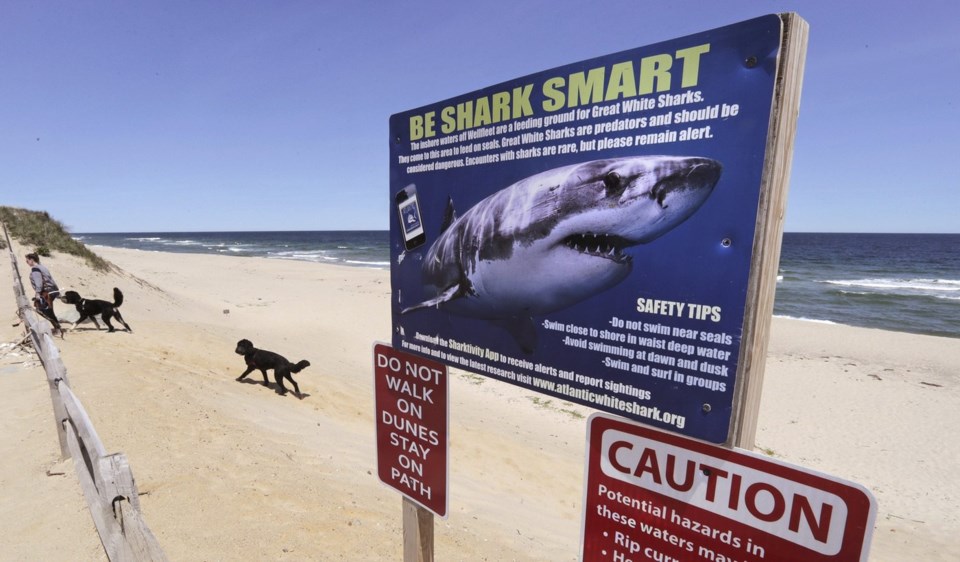HALIFAX — A possible shark sighting near a popular Nova Scotia beach prompted a lifeguard to clear the supervised swimming area on Thursday, but the head of the Nova Scotia Lifeguard Service says there's no cause for alarm.
"There's never been an attack at any of our beaches," director Paul D'Eon said in an interview Friday, adding that the service has been around for 52 years. "The risk is extremely low."
D'Eon said the lifeguard reported seeing a fin around 10:30 a.m., in or near the swimming area at Rissers Beach, which is on the province's south shore about 20 kilometres southwest of Lunenburg. The swimming area was closed until 1 p.m.
There were few swimmers in the water at the time, mainly because the water is often cold at this time of year, he said.
The lifeguard service, which oversees 24 oceanside and lakefront beaches, typically responds to about three or four potential shark sightings every year, virtually all of them coming from swimming areas along Nova Scotia's Atlantic coast. The supervised beaches are typically open between the July 1 long weekend and the last Sunday before Labour Day.
It remains unclear what kind of fish visited Rissers Beach.
"They don't come labelled, unfortunately," D'Eon said. "You see a dorsal fin swimming by and that's all you know … better safe than sorry. That's what we do."
The first time D'Eon got a job as a Nova Scotia lifeguard was 1975, the same year millions of moviegoers watched in horror as a massive shark terrorized a seaside town in the blockbuster film "Jaws."
"There was great hysteria, and that hysteria has continued," D'Eon said, adding that the sharks that frequent Nova Scotia's coasts are typically headed somewhere else.
"They're not staying around because there is no food source. I'm not a shark expert and I can't talk about shark habits, but I can talk about the risks involved."
That's why D'Eon isn't impressed with a recent plan to post signs on some supervised beaches warning about potential shark attacks.
"I think it's overkill," he said. "I think it's more dangerous to cross a crosswalk than it is to encounter a shark at the beach .... The risk at our supervised beaches has been zero — a zero per cent chance. The sharks have always been out there .... We should worry more about rip currents and people swimming out too far."
According to the St. Lawrence Shark Observatory, which maintains a shark attack registry, the last time someone was killed by a shark in Canadian waters was July 1953, when a shark rammed a lobster boat, causing it to capsize. One of the men aboard drowned but wasn't bitten.
Still, there's growing evidence that the number of great white sharks is on the rise along Canada's East Coast. Experts say the population has benefited from conservation measures and a rapidly growing supply of tasty grey seals.
The North Atlantic great white population has been protected in Canada since 2011 and in the United States since 1994. And aside from more frequent sightings, there have been reports in Nova Scotia of two attacks in recent years, one of which injured a swimmer and another that killed a dog.
Warning signs and flags have already been installed at beaches in Massachusetts and Maine following two fatal shark attacks, one in 2018 at Cape Cod and another in 2020 at Maine's Casco Bay.
In Nova Scotia, the Ocean Tracking Network at Dalhousie University plans to install warning signs at about a dozen public beaches as early as this summer.
This report by The Canadian Press was first published July 5, 2024.
Michael MacDonald, The Canadian Press



